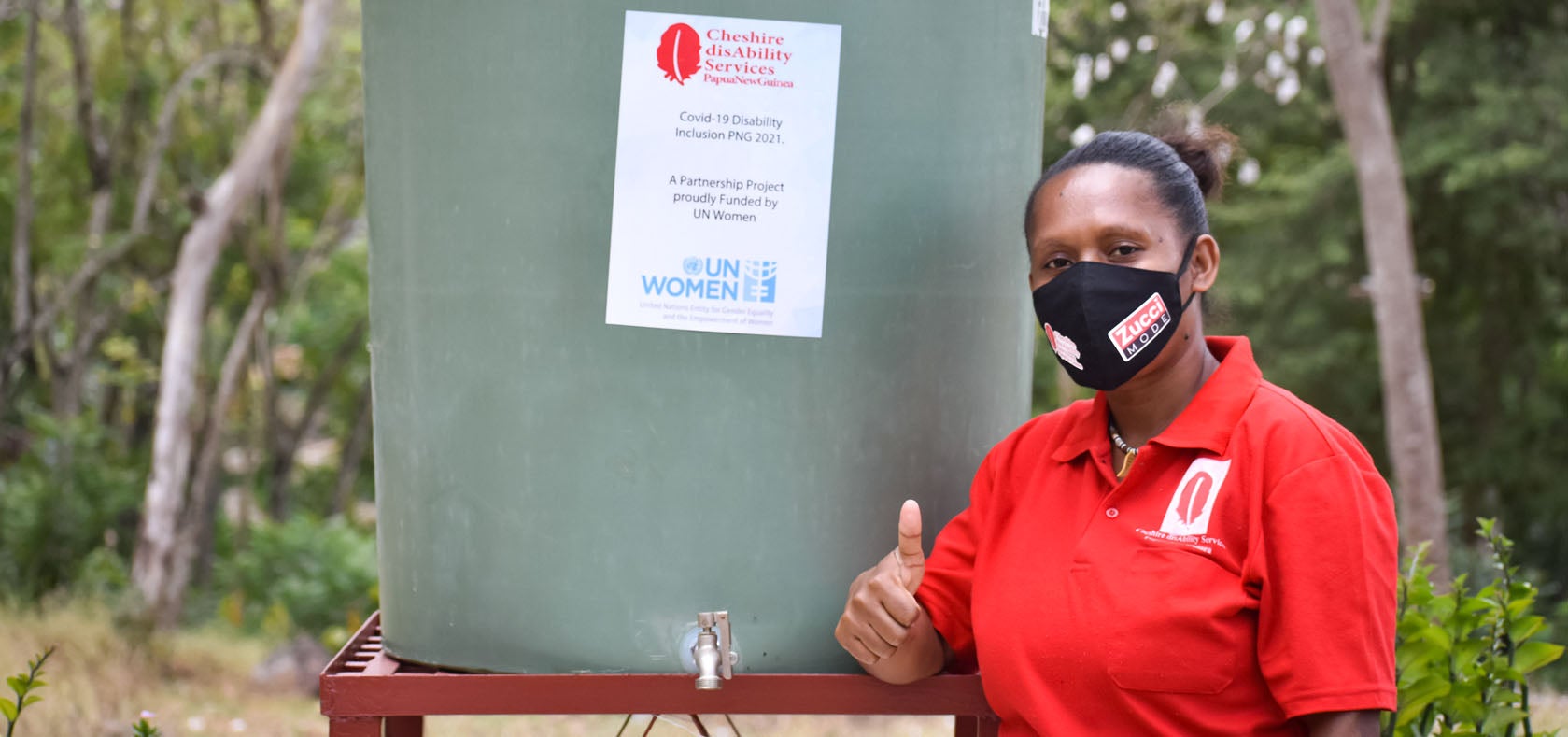In the words of Merolyn Tuwasa: “People with disabilities are the most vulnerable to COVID-19, but public services are not reaching them”
Date:
Author: Aidah Nanyonjo

Merolyn Tuwasa is a physiotherapist and team leader for the Community Based Rehabilitation programme at Cheshire disAbilty Services Papua New Guinea (PNG). UN Women has implemented a COVID-19 Disability Inclusion Project, in partnership with the organization, to raise COVID-19 awareness among people living with disabilities, their parents, caregivers, and communities. The project has reached more than 200 beneficiaries across the capital.

The restrictions due to COVID 19 have affected people living with disabilities (PWDs) in particular. It has reduced their access to medical facilities and services, and increased their financial difficulties as most rely on informal business.
PWDs are also vulnerable to contracting COVID-19. Unfortunately, most of the time they don’t benefit from public services due to marginalization and physical barriers. Relatedly, most COVID-19 awareness campaigns do not reach the majority of the population with disabilities. Most PWDs are likely to be left out of any vaccination programmes if no special arrangements are put in place. Due to accessibility difficulties, vaccination of PWDs should also be done at their homes or by reaching out at least into their communities, without expecting them to travel to vaccination clinics or medical centres. Government and other service providers should emphasize disability-specific interventions in COVID-19 prevention and awareness.
Through community awareness programmes supported by UN Women, PWDs have been able to understand how to protect themselves against COVID-19. Besides acquiring knowledge, beneficiaries have received personal protective equipment. For the first time since the community-based rehabilitation project started, PWDs were able to wash their hands before and after the therapy sessions thanks to the installed taps. Reservation tanks were also installed in the communities, which helped PWDs during times of no water to fill 2-litre containers each for domestic purposes.
Another tank was installed at the indigenous coastal community of Vabukori village in Moresby South, which is home to over 60,000 families. The strategic location also provides easy access to thousands of community members including children, women and other disabled persons to receive COVID-19 disability services.
Lastly, more awareness creation on COVID-19 specifically for parents and caregivers of people with disabilities should be conducted. Supply of personal hygiene items like sanitary items, toiletries and cleaning detergent is also needed for PDWs during this pandemic.”